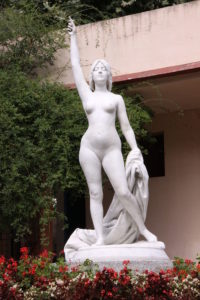 (I’m writing this article for the benefit of the many decent and hard-working people who still believe in the necessity of rulership. While I no longer hold to that belief, I love and respect very many who do.)
(I’m writing this article for the benefit of the many decent and hard-working people who still believe in the necessity of rulership. While I no longer hold to that belief, I love and respect very many who do.)
I’ll be brief, but there’s a crucial fact that Americans have seldom grasped. It’s not really secret, but it’s almost unknown. And it’s very important.
Notwithstanding its rhetorical “We the people” opening line, it was the states that created the US constitution. It was their representatives that produced it and it was they who ratified it. This was clearly understood at the time and long afterward.
And, very importantly, the states retained power under the constitution. I could throw a number of quotes at you to support this, but I’ll give you just one, leading into our main point. It comes from James Madison, the primary author of the constitution, in the Federalist Papers (#39, to be specific). This is Madison explaining the power of the states over the senate in the new arrangements:
The Senate, on the other hand, will derive its powers from the States, as political and coequal societies…
Senators, under the original constitution, were appointed by state governments, not elected by the people. This was a crucial part of the arrangement… it was the original separation of powers.
Again I could throw out quotes on the importance of breaking up power to the framers of the US constitution, but I’ll leave that to you. I will, however, summarize this point:
States weren’t given the power to appoint senators so people would be deprived a voice; it was done to prevent the consolidation of power in Washington, D.C.
This crucial arrangement held until the ratification of the seventeenth amendment. The arguments against it played upon naivety: The first was that there was corruption involved in appointing senators (as if corruption would simply cease once that changed). The second was that some states had not always appointed a senator promptly (as if such events were a deathly horror). Nonetheless, the promise of “more power in your hands” sold very well, and the proposal was ratified.
And so the states were stripped of power over Washington. But to whom was that power given?
Voters thought that power would be given to them, but it was the political class who sucked it up. Sure, people could still vote, but only between two carefully chosen and well-groomed choices. Someone with an independent streak might slip through from time to time, of course, but not enough to threaten the power of the parties.
And just to make this last point, consider that over the 125 years between the constitution and the 17th Amendment, there were minimally seven major parties. Over the 110 years since there have been only two major parties. Those two have reigned over Washington D.C. for more than a century, and continue to reign.
And, by the way, the framers of the constitution despised the very idea of political parties, making no allowance for them.
So, this is the unspoken secret lying at the center of US political power… or at least one of them.
Finally, please remember that the US was intended to be a Lockean republic, where individuals explicitly and freely agreed as to how they would be governed.
**
Paul Rosenberg
freemansperspective.com
